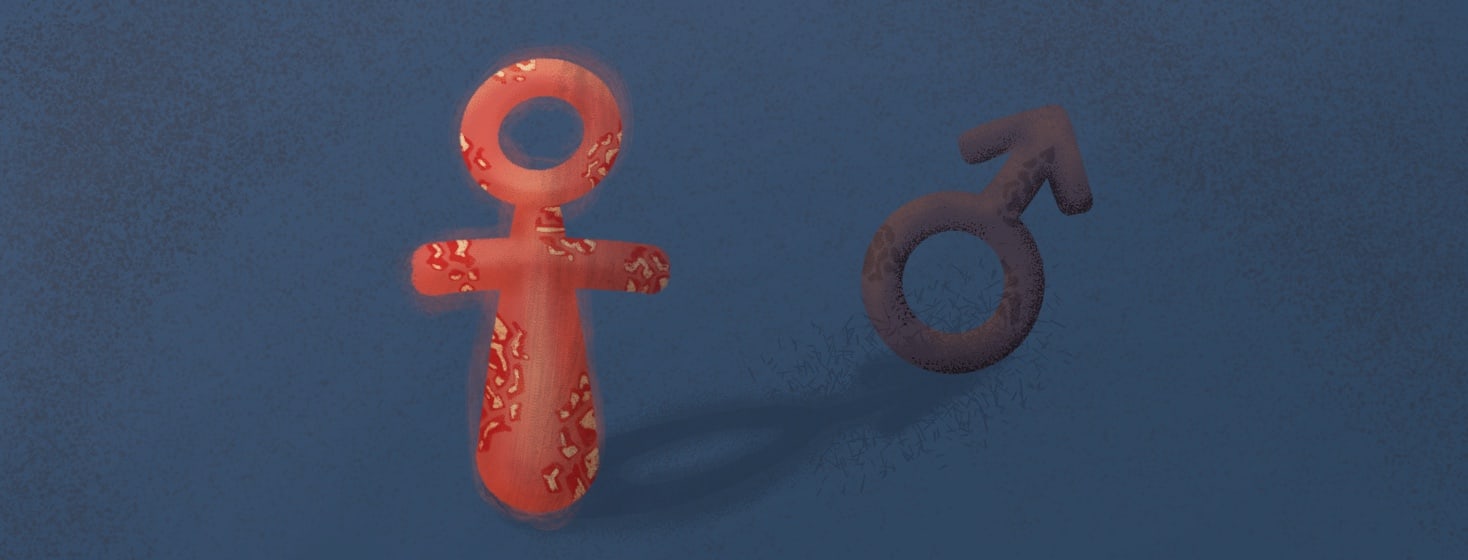The Burden of Psoriasis in Women
Studies show that the challenges of having psoriasis are greater for women than they are for men. This is partly because women experience more stigma, negative emotions, and social impact than men who have psoriasis.1,2
It’s also because psoriasis often affects women during their childbearing years. Over 75% of people develop the disease before age 40. Finding treatment options that are safe when you want to get pregnant or nurse your babies adds to the challenge of being a woman and trying to manage psoriasis.1
How common is psoriasis?
Psoriasis is a widespread skin condition, affecting around 3.2% of adults in the United States.3 That’s more than 8 million people. Worldwide, estimates are as high as 125 million people.4
In total, about 20% of people with psoriasis have moderate to severe disease, which means they have patches of red, itchy, scaly skin on more than 5% of their body. About the same number of men and women get the disease, but a 2017 study showed that more men than women develop severe psoriasis.5
More psychological distress for women
Given that more men have severe psoriasis, it is even more significant that women bear a higher impact than men when it comes to the social and emotional impact of psoriasis.
In multiple measures of quality of life, women report a higher burden from psoriasis than men. They report lower levels of happiness, higher stress, more loneliness, more feelings of stigmatization, and reduced sexual activity compared to men.1
Psoriasis can change during pregnancy
For some women, their psoriasis may improve during pregnancy. However, about 25% of women develop more severe symptoms when they are pregnant. And more than 50% experience flares—when symptoms become worse—after their baby is born.1
Because psoriasis can get worse for many women during and after pregnancy, it’s important to find safe ways to treat the disease. This is especially critical given the heavy toll that psoriasis can take on women’s happiness and self-esteem.
Inconsistent studies on psoriasis in mothers and healthy births
Studies looking at complications during pregnancy for mothers with psoriasis have been inconsistent. Some studies show there’s no difference for mothers with and without psoriasis.
But some studies seem to show an increased risk for the mother and the baby. The risks increase when the disease is more severe. This includes increased pregnancy complications like gestational diabetes and pre-eclampsia for women. Babies are more likely to be born at lower weight or earlier when they are born to mothers with more severe psoriasis.1
Many medicines aren’t safe during pregnancy
One of the difficulties in treating psoriasis in women who may become pregnant is that many of the treatments may harm a developing fetus. Others haven’t been tested enough in pregnant women to know whether they are safe or not. And since more than 50% of pregnancies are unplanned, babies are very much at risk if their mothers are taking medications that can harm fetal development or cause a miscarriage.1
Additionally, nursing can cause new plaques to develop near the nipples. This can lead to more pain and irritation for the mother, again with limited treatment options.
Importance of discussing family planning
Several studies have shown that health care providers are not very proactive in talking to women about psoriasis and pregnancy.1 Many patients ended up starting the conversation. But the physical and mental health of women and their babies are very much at stake when it comes to treating psoriasis, especially with severe disease.
The authors of one recent study advise doctors to address these issues sooner with their female psoriasis patients. They also urge doctors to stay up to date on new research about psoriasis medications and their safety in pregnancy.1 Results are published frequently, and having well-controlled disease is clearly of critical importance for women, especially when they are of childbearing age.

Join the conversation